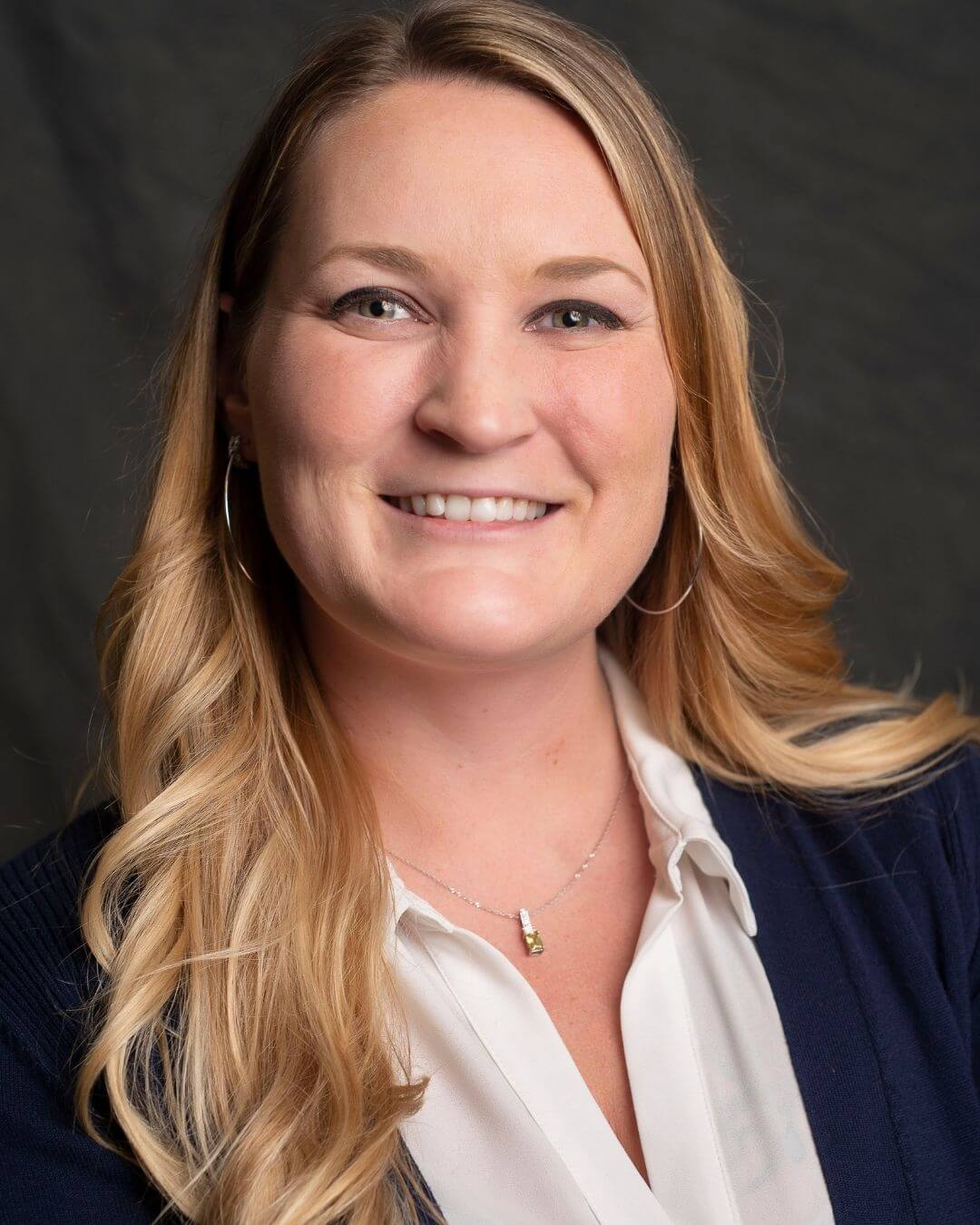
Buying a condominium is not the same as buying a house. Learn why…
Get this free cheat sheet on how to buy a condo Maine Condo Buyer’s Guide real estate attorney top tips on buying a condo
Maine has many condominium associations. Which is the one for you?
My name is Jesse Bifulco. As an attorney I’ve represented buyers of condominiums as well as condominiums themselves for many years. It has frustrated me that so many people who buy condominiums have no idea what they are buying. To try and help condo buyers, I asked a group of real estate attorneys to reveal their condominium buying tips.
In this article you will find a condo buyers checklist. You’ll find condos explained in plain English. But keep in mind, this article is not legal advice. The condo checklist and information provided are not a substitute for legal representation by a seasoned real estate attorney.
Why Buy a Condominium?
People buy condominiums because condominium ownership can be a great way to be a part of a community. It can also be a great way to own and maintain shared property that you might not be able to afford individually. Some condominiums feature gyms, swimming pools, and nature paths that no single unit owner could afford on her or his own. Some folks like the idea of not being responsible for the maintenance of their dwelling place. They’ve grown tired of mowing the lawn or having to think about when to replace the roof. They like the idea of paying a monthly fee for all of that. A condominium development can be a well-run, financially sound investment. But it can also be a nightmare. Read this article to learn from seasoned real estate professionals what to look out for when buying a condominium.
“Attorney Jesse Bifulco of Penbay Law helped myself and another board member of our condominium association to revise our bylaws and bring them into alignment with our Declaration and Maine Condo Law. Attorney Bifulco has very helpful. His responses to our questions and requests for reviews of drafts were always rapid, thoughtful and explained in a way that did not leave us wondering about legal terminology. He seemed well versed in condo law and clearly took the time to carefully review both our declaration and our proposed bylaw revisions. His willingness to work with us on electronic versions of such documents also speeded the process. Should we face another such project we would certainly approach him for help again.“
What Is a Condominium?
John P. McGeehan, a condominium attorney who has owned several condos and serves on condo boards has been representing associations since the ‘70s. John puts it this way, “with land, you get land and with it some rights; with a condominium you get some rights and a little land.”
A condominium is not the same thing as owning a house. What you own are rights. Those rights vary depending on what area of the condominium property you are using. You have the most rights within your unit. You have less rights outside of your unit. The unit and the common elements are defined in the condominium’s governing document. Okay, so, plain English: You must share everything outside of the unit with all or some of the other unit owners. There are rules that say what you can and cannot do. Those rules “govern” your right to use and enjoy the condominium property. If you break those rules, you can be fined. The fine can be a lien on your unit. That lien can be foreclosed just like if you didn’t pay your mortgage.
Choosing a condo? Protect your invesment!
Condo Buyer’s cheat sheet.
Learn from seasoned experienced real estate attorneys how to protect yourself when buying a condominium.
What is Due Diligence When Buying a Condo?
Attorney McGeehan gives this tip,
**Before you buy a condo, find out if the rules that govern the association, and the people enforcing those rules are “Easy? Restrictive? Does the board delegate everything to a management company? Are they totalitarian?”


I’m passionate about helping people protect their family, prevent loss of property and needless conflicts. I’ve seen what can happen with a bad or no estate plan. I have seen what can go wrong, and I know how to prevent it.
-Jesse F. Bifulco, Esq. Estate Planning Lawyer
Before Buying a Condo, You Need to Know…
Before buying a condominium, you need to know what your rights will be as a unit owner. If it is “totalitarian” as Mr. McGeehan suggests some condos are, you really ought to know that before you buy. After you buy, it’s too late!
Whether called Bylaws, or Declaration, Rules and Regs, or Master Agreement or Declaration of Trust, you need to know what it says!
The name of the game when buying a condominium is due diligence. Sounds like lawyer speak. But it is common sense, “buyer beware”. If you do a little homework before you buy, it is well worth the investment of your time. Why is it so important? Because you’re going put a lot of money into something that has shared ownership. To put it in perspective, imagine that you’d like to have a car that is worth twenty million dollars. There is only one of this kind of car. The owner is willing to sell you and thirty-nine other people the shared right to use the car. How much are you paying for this 1/40th of the car? Six hundred fifty thousand dollars. You pay the six hundred and fifty thousand dollars.
Then you decide to take the car for a spin to your golf club to impress your business associates. First, you find out the tires are bald. Then, after you’ve ponied up tire money, the car’s management agent tells you “we’re sorry, you can’t bring the car to any golf clubs. There is a no-golf-club rule.” Wouldn’t you have liked to know that before you paid six hundred fifty thousand dollars? In this analogy the car is your condominium unit. The bald tires are deferred maintenance on the common elements – like a roof that needs replacing. And the “no golf club rule” is like a rule that says you’re not allowed to rent your unit on airbnb, etc.
Maine Coast Condos
Many folks have always dreamed of a view like this one. There are condominiums in Maine that have views like this. But you should look before you leap.
“Estate Planning should be approached from the perspective of how can I protect this family? How can I preserve their property, and prevent family conflict?”
What a view!
How is Owning a Condominium Different than Owning a House?
Condominium ownership verses owning a house, is very different. With a regular old piece of real estate, you step off of your porch on Saturday morning, and you mow your front lawn. With a condominium you exit your unit, walk across the limited common element deck, and then mow the grass growing on the common elements, – and you may be fined if you mow the grass on those common elements because only the landscaper is allowed to do that and only on a Tuesday!
With shared ownership there are rules. Sometimes your reasonable expectations of how you will get to use your condo are prohibited by those rules. With shared ownership you are tied to others. There are common expenses to be paid, sometimes special assessments, one-time fees, and if the people managing the thing aren’t very responsible, it could be teetering on bankruptcy.
But won’t the realtor make me aware of everything I need to know? You should not rely on the realtor to do your homework. How about my attorney? Most attorneys do not read the condominium’s governing documents or explain them to you.
“with land, you get land and with it some rights; with a condominium you get some rights and a little land”
What is a Condominium Unit?
“They should know exactly what they’re buying,” advises attorney Richard T. Liuzzi of Stewart Title & Escrow, Inc. in Fairfax Virginia. Most people have no idea what a condominium is. Condominiums are defined rights to use and enjoy real estate. Typically, the unit owner has the most control and use over their unit. But what is the unit? The unit is defined in the rules. The “rules” are contained in a state law. But there are also rules contained in the condominium’s bylaws and declaration or master deed. In Maine, there are two statutes that govern a condominium. There is the Maine Condominium Act, and also the Maine Nonprofit Corporation law. Also, the state law allows the condominium association to customize some of the statute’s rules in their own sub-rules. For instance, the state law may contribute to the definition of what constitutes a unit. But the declaration, and bylaws or in some states what is called the “Master Deed” may also define the unit. But wherever the definition is contained, the unit will be defined in terms of its boundaries. Why should you care? Because within the unit is where you have the most rights to use and enjoy the property.
What Are the Parts of a Condominium ?
Condominium property is divided between units and common elements. Units are that part of the development that a unit owner has the most control over. I say “most control”, because even though a unit owner can have a great deal of choice about how they use their unit, they cannot do things that would injure other units or common elements, or that break the rules. For instance, inside a unit, the owner can typically change the layout, or paint whatever color they want. But they can’t remove a structural wall, or over charge an electrical circuit. Sometimes they cannot change a window, or put an air conditioning unit in a window, or a sign. One man’s lovely decoration is another man’s abomination. Not too long ago there were condo wars raging about “occasional flags”. You know, those flags that have a picture of a puppy or a sunflower that were so popular a few years back. If you dislike them you would say the condo association worked well to prohibit them. If you liked them you would say that the association’s governance was “totalitarian” to prohibit them.
What Are Limited Common Elements
Limited common elements are common elements that fewer than all unit owners have a right to use. Think of this as a part of the condominium complex that the association wants to control, but not everyone gets to use. Perhaps a deck, or a common walkway.
Do I Have a Right to Rent My Condominium?
Another violated expectation may be renting. If the association has a rule against renting, you can’t rent the unit. These are general observations. You should not assume you can do something in your unit without reading your condo’s rules about it.
What If I Don’t Want Renters?
“How about asking what percentage of the units are rented?” suggests attorney Stephen Dyer. Why might that be important? There are many reasons. The character of a community that consists of mostly owner-residents verses mostly renters can be quite different. The other important factor is whether the renters are long term or short term. The longer the term, the more like owners a renter behaves. The shorter the term, the more like a hotel the community becomes. If the rents are very high, this fact might not be of too great a concern. But if the rents are modest or low, there may be a high turnover of renters. The greater the stake the residents have in a community, the more likely it is to be well run, peaceful and pleasant to live in.
Can I Enclose The Deck On My Condo?
I know of one condominium owner who bought a unit in a summer cottage. The cottage has a deck. After moving in, the new condo owner learned about black fly season in Maine. The unit owner decided to enclose his deck with insect screening. Unfortunately, the rules prohibited the unit owner from installing screening. The association controlled the deck, and not the unit owner. The unit owner then learned that in this part of Maine we experience frequent power outages from storms. The unit owner decided to install a standby generator. The unit owner could not do that, because he would have had to use the common elements.
Let’s Make A Plan
207-236-4888
What Are Common Elements in a Condominium?
Common elements are the shared part of the condominium development. How and to what extent each unit owner can use the shared parts of the condominium is spelled out in the rules that govern the association.
If the condominium development consists of many units within a single building, the definition of a unit may be the surface of the interior floor, walls and ceiling of the individual unit. Once you leave that enclosure, the rest of the building and the surrounding land are common elements. If the condominium units are freestanding single family-occupied buildings, the definition of the boundaries of those units may be the entire building.
Attorney Liuzzi admonishes potential buyers of a condominium unit to “Read the definition of what constitutes a “unit” as stated in the Master Deed or CCR’s.”
Mr. Liuzzi gives an example that may surprise you. “Most units include the windows and doors. Some do not.” A question for you, as the potential buyer of a condominium is this: if your unit does not include windows and doors, can you put in any kind of window and door you want? The answer is no. The reason an association may not include a window or door in the definition of a unit is typically because the association wants to control what kind of window or door is installed. This leads to another question. If you don’t have control over something attached to your unit, like a window, door, skylight, balcony, deck, porch, patio, or driveway, then do you have to pay for it? Or does the entire association contribute to the cost of maintaining it?
In many condominiums the stuff inside the walls, like wires, plumbing, utility lines, are common elements. Sometimes such items are defined as part of the unit. What difference should it make? Because you may end up having to pay for something that you thought your common charges covered. Attorney Liuzzi speaks from experience when he points out “In some cases, the electric lines can run quite a distance from a main service panel to the breaker panel in the unit, making that long line part of the unit and the owner’s responsibly to repair or replace. The same with plumbing lines.” I can’t tell you how many times I’ve had new unit owners exclaim “but I thought my common charges covered everything!”
“I thought my condo fees paid for everything!”
What Do I Have to Pay for In the Condo?
Many people who are shopping for a condominium think that the association pays for everything. New unit owners email the Management Agent or the President of the Board all the time and demand that the condominium fix something which is the unit owner’s responsibility.
“Also, in a townhouse situation, check the documents to see how costs are allocated for repairs to common walls.” Attorney Liuzzi is pointing out the fact that every condominium has its own rules about what parts of the condominium are paid for by the unit owner, and what part is paid for as a shared expense of all unit owners.
Maine Coast
For some a condo is a second home, for others it is their dream home.
“Did you know you can put your condo into a Trust?”
The morning walk.
What Does Your LifeCounsel® Estate Plan Look Like?
An Attorney-Counseled Process from Home
With our exclusive LifeCounsel® Design Interview, you achieve your personal planning goals:
✔ by phone
✔ video conference.
Get peace of mind, right from the comfort of your home.
LifeCounsel® process encapsulates over 50 years of legal experience – two generations of representing families, our system to make sure your plan works!
Provide Calm & Security When Its Needed Most
✔ Leave lasting positive memories and more of your wealth.
✔ Give your kids a shield when its needed most.
✔ Prevent your surviving spouse or kids from being forced to make difficult decisions during a time of crisis.
✔ Maintain privacy during a time of vulnerability.
✔ Avoid costly legal proceedings.
✔ Prevent needless family conflict.✔ Ensure your preferences are honored during a period of vulnerability.
Find out if you should put your condo in a trust.
Using the Minutes: Find the Dirty Laundry Before You Buy a Condo
Condominium Associations are corporate entities. They are usually formed as non-profit corporations. Because they are non-profit does not mean a condominium is a charity. A non-profit association, like a condominium, or a homeowner’s association, are non-profit because they are not formed in order to make a profit. Rather they are a useful structure to organize, control and maintain a shared enterprise. In this case, a condominium development.
Condominiums formed as corporations are governed with corporate formalities. That means that a condominium has unit owners who are members. The members vote for directors. The directors govern the condominium association. When the members meet or the directors meet, they keep a record of their actions. The record of their actions is called “minutes”. In a given year there may be twelve meetings. There may be more, there may be less. Also, the minutes are usually not more than a page or so per meeting. So don’t think that a year of minutes is too much homework! But why would attorney Peterson suggest that if you’re thinking about buying a condominium that you read a years’ worth of minutes?
Because, if you want to know what the membership thinks is a problem, or how the board deals with problems, it will be revealed in the minutes. For instance, have they just discovered that there is a construction defect in one of the buildings? Are they concerned about a unit owner’s frequent violations? Are they grappling with the issue of whether to permit unit owners to rent on Airbnb? These are discussions and actions that will be revealed in the minutes. But because they have not yet resulted in any rules or changes to the documents, or perhaps are unknown potential liabilities, they are not going to show up in the resale certificate.
Use the corporate Minutes to learn…
Is the community harmonious? or constantly fighting?

What Are Condominium Reserves?
Before buying a condominium always ask if they have a reserve study. A reserve study shows the life expectancy and cost of replacement of things like the roof. The reserve study should show all common expense elements that will need to be replaced, when they will need to be replaced, and how much it should cost. What does that mean in real life? If there is no reserve, you could buy a unit, expecting to pay $500 a month in common charges. The next day, you could be handed a special assessment for your share of a brand-new roof, for let’s say $12,000. If there was a reserve account, the roof cost would have been collected over the course of 8-10 years, and there would not have been a need for a special assessment.
Reserves or a reserve account is money set aside to replace condominium elements that will need to be replaced over time. “Check whether reserves have been properly/adequately funded,” recommends attorney Thomas M. Little of Foley & Lardner in Tampa, Florida. This is extremely important advice echoed by every experienced real estate attorney who responded. “Also ask if the condominium hired a consultant to do a reserve study which forecasts capital expenditures. Find out if the assessments have been set at a level to accumulate funds to pay such expenditures as they become due. At my condo (new) we did a 30 year projection last year,” Attorney Rick Oshman of Houston Texas speaks from personal experience.
For example, the roof may need to be replaced every ten years. If the condominium association is putting 1/20th of the cost of the new roof into a reserve account every year, in year ten, they will only have half the money needed to replace the roof. That would require a special assessment for half the cost. If they had put collected 1/10th the cost, then in year ten they would have enough for a new roof. But what if there is no reserve account? The roof still needs to be replaced. If there is no reserve account, the association needs to charge the unit owners a special assessment to replace the roof. Now imagine you just bought the unit the year the roof needed to be replaced. The resale certificate may not have revealed that special assessment. But you only budgeted for the ordinary common expense – not a special assessment.
How to Tell if a Condo is Financially Sound?
A financially stable condominium is valuable. A bank is more likely to lend money to the condominium if it is financially stable. A condominium unit in an association that is financially well managed is more likely to appreciate in value. That means, a well-run, financially stable condominium should go up in value. On the other hand, a condominium that has a lot of deferred maintenance, no reserves to pay for repairs and replacement, debt, and budget shortfalls, will probably go down in value. It is easier to get a mortgage on, and therefore easier to sell a unit in an association that is financially stable. On the other hand, it is difficult to unload a condo in a development where the price is falling because it is poorly managed. But how do you know if a condominium association is financially stable? We already explained the purpose of a reserve study, and a reserve account. A reserve account based on a reserve study is one sign of a financially well-run condominium. Another indicator of financial stability is arrears in payment of common charges. Think of common charges like the dues you have to pay to own the condo. If people aren’t paying obviously that is a problem.
Dale Whitman, Professor of Law Emeritus, University of Missouri, advises prospective buyers of a condominium unit to “ask the HOA president what proportion of the owners are habitually late on their assessment payments (or worse yet, are in litigation to collect their assessments or foreclose the liens on their units). If the percentage is very high (say, more than 5%), I would worry that the project is going to get into financial trouble, even if it isn’t quite there yet.”
With any purchase of a unit in a condominium or a planned development, the purchaser should try to find out as much as possible about the financial condition of the HOA. Among the methods for doing that:
- Review copies of all newsletters and notices to members for the past year.
- Review the most recent financial report or statement of the association.
- Talk with the president of the association; ask about its financial condition, whether any special assessments are planned or have been discussed, whether any increase in the regular assessments are planned or needed, and whether the HOA’s relationship with the outside management company (if there is one) is good.
Who would you hire to build your house?
“But new construction does not mean quality construction.”
How to Discover Construction Defects in a Condo?
Another common issue that arises with condominiums is construction defects. Because they may not be discovered or discoverable for years, a community can be forced to grapple with budget busting expensive repairs long after the developer has disappeared.
If a construction defect has been discovered, you may learn of it in the budget documents. You may also learn of it in public court filings.
But how can you learn about something the association may not yet be aware of? You can find out the name of the developer and or the construction company that built the condominium. In many communities these companies and the individuals involved have reputations. Dig a little. You may be surprised at what you learn, and a little digging now can save you thousands of dollars in the future.
One experienced attorney described a great practice when representing a condominium buyer. “We put in the purchase and sale agreement that seller will permit and arrange for us to speak to the manager or board member and ask all the questions about budgets, reserves, planned special assessments or fee increases, association loans, defects etc,” says Stephen Marcus of Emmer & Brooks in Braintree, Massachusetts. If you can get such a clause in your contract it will make it much easier to get the answers to most of the due diligence questions quickly and easily, and as a right in the contract!
However, Attorney Marcus points out that this works well with a condominium that is already controlled by unit owners, as opposed to the developer. In the beginning, when the developer owns most of the units, the developer controls the condominium. “But in a developer-controlled association it is difficult to get a developer board member to state that the buildings have horrible leaks and code violations.”
Ultimately, you are going to have to be a bit of sleuth and conduct an investigation. However, with the internet, you may net the information you are looking for without too much time and expense.
Tips to Discover the Possibility of Construction Defects
- Search the public record, the deed registry in the County to find out who bought the real estate where the Condominium is located
- Search public records and the internet to find out what company or people were hired to construct the condominium buildings
- Search the public record for the names of the condominium’s developer, contractors, the company and the people who own the companies for any negative stories or lawsuits
- public records of building inspections, or certificate of occupancy inspections
Condo Sources of Information: Public Records
Some great practical advice comes from attorney C. Gregg Larson. “I would include questions about crimes. A client had the storage unit in her condo building…broken into and all the units were ransacked. (The Buyer) might want to check sex offender maps.”
How much information could you find out spending ten minutes on the internet? Many locales include a great deal of free searchable public information that can give you a sense of the issues that may be relevant to your condominium.
Attorney John Gear in Oregon had this to say, “Anyone thinking of buying into a condo (or any other type of HOA) should do a search for litigation history… and read all the complaints…”
That is great advice. All associations have a culture. The kinds of complaints made, and how they are resolved will reveal a great deal about the community you are considering joining. Attorney Gear goes on to say of lawsuits, “find out whether cases get settled or go to foreclosure.”
Mr. Gear’s comment may have you asking who is foreclosing? Most people do not realize that a condominium association can foreclose on your condominium unit. This is something it is very important to know before buying a condominium. Condominiums are governed by rules. Those rules are contained in various documents. There are rules in a state law, the state law also allows the condominium to have rules in the form of a declaration, bylaws, and also rules and regulations. What if you as a unit owner do not follow the rules? What can the condominium do about it? They can fine you money. If the rule involves maintenance or repairs, they can make that repair for you, and charge you for it. So, if you don’t follow the rules, sooner or later you will end up owing the association money. If you don’t pay that money, the condominium can foreclose on your unit. “Foreclose” means they can force the sale of your unit to pay the fine that you owed.
Attorney Gear’s tips are extremely practical and easy to follow. By looking at the court records, which in many counties are online, you will learn if there have been lawsuits that involved the condominium. For instance, if you find that there are many lawsuits or legal complaints, against the condominium by unit owners, what might you conclude from that? If there are many foreclosures against unit owners by the condominium association, what might you conclude from that information?
Why Should You Search Condo Lawsuits Before You Buy?
Legal complaints are public records. That means you can actually read what the unit owner is complaining about. Or conversely exactly why the condominium association is foreclosing on a unit – why they fined the unit owner in the first place. Did the unit owner simply fail to pay their common charges? Was it about smoking pot? Cooking smells? Failure to maintain the unit? Renting the unit on Airbnb in violation of the condominium documents? Letting their pet pitbull off the leash in common areas? How many pitbulls does this association have any way?! You see how each one of these different possible complaints colors your impression of the kind of community you might be living in? What about the information I revealed about the enforcement process of a condominium? Will you be comfortable living in a place where your neighbors could fine you for not following the rules and ultimately foreclose on your unit?
As Attorney Gear correctly points out “There’s no better way to know the kind of treatment you might get than to look at how they have treated others and what prior owners have said about them while they were on the inside.”
Condo Tips When Developer is In Control
When the developer is still in control, one practical suggestion is to ask someone already living there “how the developer has dealt with punch-list items and have owners expressed concerns about building construction defects, such as leaks, etc. It is not ideal but typically the purchase is the largest investment of the person’s life. If you buy a car, you at least kick the tires.
I think the attorney for the buyer and the buyer have to take a deeper dive into all questions but especially construction defects and inadequate reserves and the like. It will cost the buyer a little more money and time and it is not perfect but we have dealt with too many developments where the association engages in protracted and expensive litigation over construction defects sometimes in the millions and millions of dollars and no with adequate reserves,” says attorney Marcus.
Have a friendly chat with a current resident of the condo.
How Are Condo Fees Calculated?
If your common charges are going to be based on the size of your unit, you should verify the square footage of the unit. “Caveat emptor,” says Stephen R.H. Ortiz, CEO of Wilderness Gate. Mr. Ortiz is referring to the age-old legal adage “let the buyer beware.” That means, check everything out before you buy. Mr. Otiz relates a personal incident.
“I thought I had outfoxed the London gazumping property pirates by purchasing a brand new condo on the Grand Canal in Islington. Gazumping is a nasty England & Wales practice. Sensible Scots have banned it. Preparing some ideas for (finishing the condo) I was using some graph paper to have my ideas to scale. I quickly realized I was missing about 1,000 square feet. When I confronted the developer’s office about this, they brassily replied that “it is the accurate square footage if you add a loft.” When I queried about the ceiling heights, I recall they were decent 16′ or so, which meant the loft would have a sub 7′ ceiling. “Yes the ceiling height in the loft would be 6’6″ at the midpoint, and tapered from there.” I cancelled my contract, on the basis of undisclosed material fact”
Common Charges or Common Assessment Allocation
Common Assessment or Common Charges are the condominium fees each unit owner must pay. The fees are typically payable in monthly installments for the year. These fees are based upon the annual budget. If the condominium has certain expenses, carrying charges, maintenance, plus contribution to a reserve fund, that is all put into the annual budget. The cost of that annual budget is divided between the unit owners.
How the expense is shared out between the unit owners can vary by condominium association. In some associations, they simply divide the total expense between all the unit owners. That is called per capita. Another method of division of responsibility for condominium expense is by square footage. That means that the larger the unit the greater share of the common expense the unit owner pays.
In Maine the formula for how common expense is shared between the unit owners must be contained in the declaration.
Here is an example of what the law looks like:
“The declaration shall allocate a fraction or percentage of undivided interests in the common elements and in the common expenses of the association and a portion of the votes in the association to each unit and state the formulas used to establish those allocations. Those allocations may not discriminate in favor of units owned by the declarant. “
Condo Assessments as Surprise Costs in Buying a Condo
“One of my daughters had a contract to buy a condo. The brokers knew that an assessment was being contemplated for new windows. In reviewing the minutes of the condo board and getting a contractor’s report prepared for the board we figured out the assessment was going to be over $30,000 a unit,” revealed transactional attorney Jim Henegan. Can you imagine the surprise if Jim’s daughter had not discovered this upcoming assessment? Since the action was not yet approved, a resale certificate would not have shown it.
How might you find out about an assessment that is coming down the pipe? “Review Board and member meeting minutes for the last 12 to 18 months,” says Thomas M. Little of Foley & Lardner, attorneys in Tampa Florida.
Many of the attorneys interviewed suggested that a prospective condo buyer should speak to the management agent, or a board president or officer. However, another attorney, one who generally represents condominiums, admitted that most management agents and condominium officers and directors are counseled not to talk to buyers. One reason for that is that they do not want to get sued by the seller if the buyer backs out of the deal.
So, if you ask to speak to a condominium board member or managing agent, don’t be surprised if they refuse on advice of counsel. Or if they do not refuse, they may ask that the buyer, seller and realtors sign a general release holding them harmless.
Condo Parking Nightmares
I’ve got my own stories about parking and storage. In one condominium I dealt with, as soon as a unit owner moved out, other unit owners claimed their parking and storage. The new purchasing unit owner confronted them, and it was a mess. It turned out that the association did not have rules to govern the use or assignment of parking spaces. The new buyer had difficulty walking and now had a space blocks away from her door! Before buying a condominium, you should always find out if there is storage, or a parking spot. What if someone visits you? Where do they park? And do not take the seller or seller’s realtor’s word for it. Ask them to show you the place in the Declaration, Bylaws, or Rules that specifically assigns the unit a right to that parking or storage.
Condo Storage and Condo Parking
On the subject of parking and storage, Steven W. Bender, Professor and Associate Dean for Planning and Strategic Initiatives at Seattle University School of Law says, “due diligence around the ownership and conveyance of parking spaces and storage units is essential.” Why? Because, again, you might be surprised to learn the rules surrounding parking or storage.
You should find out which space/storage numbers were advertised with the listing. Do they match what the condominium declaration/documents provide for that unit? Many prospective buyers of condominiums do not realize that sometimes parking spaces can be conveyed between condo unit owners outside of the condo documents. In other words, the condominium’s declaration and bylaws, or master deed, are public recordings. They are public so that a buyer can see what they are getting. However, sometimes after those documents are recorded, sometimes, things can be changed that are not reflected in those documents. If it is important to buy a parking space or storage space, make sure that the governing documents approve this. And if the governing documents approve such sales, make sure you know if the unit you are buying sold their storage or parking space to someone else before you buy the unit.
Professor Bender makes these practical suggestions:
- “Does the unit description match the real property tax records that sometimes tax condominium units or their accessory spaces for parking or storage as separate tax parcels?
- Are and how are parking spaces or storage spaces referenced in the seller’s deed?
- Also, make sure this all gets into the buyer’s deed, and title insurance policy.”
These are great tips. Checking the tax record, reading the deed, and reviewing the condominiums governing documents can save you thousands of dollars, and hours of anguish later.
Contact Penbay Estate Planning Law Center
207-236-4888
Lawyers Serving families throughout Maine.







